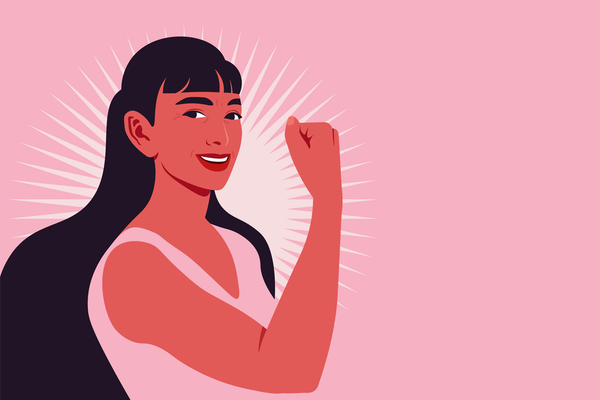Even if you don't make new year's resolutions, who doesn't want to be healthier? Here are some tips to help you get there.
Take a time out. There's a reason little kids are given time outs: It's so that they can take a break from a stressful or volatile situation and gather their feelings. Adults need that, too.
Adopt a positive attitude and focus on gratitude. It will improve your physical and psychological health and help you sleep better, according to research.
Substitute organic where possible. A new study suggests that it may lower your overall risk of developing cancer. The fruits and veggies that contain the most pesticides include strawberries, spinach, nectarines, apples, grapes, peaches, cherries, pears, tomatoes and celery. If you can't buy organic, it's still important to eat your fruits and veggies, even if they're grown conventionally.
Listen to your body. It can tell you a lot, like when you've pushed yourself too hard physically; when your stomach is full; when you need to close your eyes and sleep. Listening may save you the countless health consequences that come from ignoring your body's needs.
Use mistakes as learning experiences. Instead of berating or blaming yourself, realize that making a mistake means that you tried, at the very least. You were out there living your life. Use the mistake to teach you to be creative, deepen your understanding, reveal something you might have missed and figure out a way to do it differently and better the next time.
Consider cutting down on alcohol. Even if you don't feel it or see it, alcohol affects every organ in your body. And since your liver can only metabolize a little at a time, the rest is left to circulate throughout your body. The latest recommendation is one drink a day for women and two for men. One drink is equivalent to 5 ounces of wine, 12 ounces of beer, 8 ounces of malt liquor or one 1.5 ounce "shot" of 80-poof liquor.
Exercise daily. Even as little as 10 minutes can make a difference. Exercise can reduce the biomarkers of aging and improve bone density, blood pressure, lean muscle mass, cholesterol levels and—last but not least—your sleep.
Walk more and sit less. It's estimated that the average person spends 12 hours a day sitting, and 3.2 million deaths each year are related to being physically inactive. We sit for work; we sit to commute; we sit for dinner; and we sit to watch TV after dinner. But our bodies are meant to move. Science backs up the benefits of sitting less and standing and moving more.
Pick up the phone. Yes, it can be easier and faster to text or email, but there is no substitute for a phone call. Without hearing the voice at the other end, you miss the nuances and the unexpected and often delightful twists of a real conversation.
Eat more fiber. Most of us don't get enough (we should be eating 20 to 35 grams daily). By missing out, we are cheating ourselves of a means to help prevent diverticulosis, constipation, high blood cholesterol levels and higher risk of colorectal and breast cancer.
Own your own time. Avoid burnout, resentment and stress by controlling how you spend your time and learning to say no more often.
Reduce stress. Better yet, nip it in the bud. That means don't bury it, but address it right away with super-quick remedies like deep breathing, calling a friend, inhaling the scent of lavender, stretching or taking a leisurely stroll. (If you need one more, see item #1, above.)
Vary your workout routine. Doing the same thing day after day can lead to boredom and burnout. Try different classes at the gym, challenge yourself with a new activity, go outside and walk instead of working out at the gym.
Relax before you relax. Don't get into bed and expect to sleep if you're all wound up. First, take a bath, do some stretches, enjoy a book or do some simple deep breathing exercises. Just five to 10 minutes can be enough to help you wind down.
Make a list. You may think you'll remember all you have to do, but chances are you won't, which will only lead to stress and regret (and maybe even missed appointments). Organizing your life will help you feel more in control and more grounded, ready to take on the day.
Get outside. It's easy to stay cooped up—especially when the weather is cold—but it's not good for your mental or physical health. Research shows that group nature walks help relieve depression and stress and enhance well-being. Being outside can also help you sleep better, boost your concentration levels and help you avoid seasonal affective disorder, common when days are shorter and colder.
Leave work at work. It can be a tough thing to do, especially when we're all connected with 24/7 access to email. But everyone, regardless of their level of dedication or responsibility, needs a break to avoid exhaustion, burnout and a breakdown in their performance.
Smile more. A smile can not only make you feel better, it can make a stranger's day, too. The mere act of turning up the corners of your mouth activates neural messaging and boosts your mood. Smiling at someone makes you appear attractive and sincere. And since smiling is contagious, it's more than likely the scowling stranger you smile at will soon be smiling back at you.
Do some strength training. It's not just for the aesthetics of toned arms and legs: Stronger muscles can help your flexibility, stress, mood and posture and increase your metabolism and protect you from some of the most common causes of early death and disability. Learn more about the Benefits of Strength Training As You Age.







